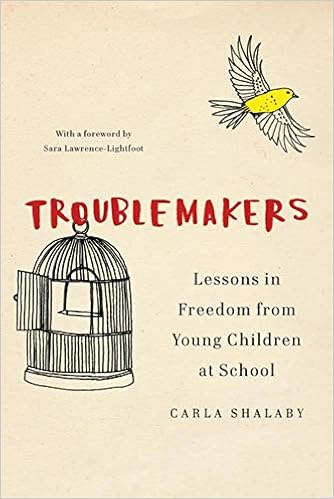Reflection to Troublemakers by Carla Shalaby
Ageism has been generally defined as a prejudice people from a certain age group hold towards other age groups. How does ageism impact our classroom rules, procedures and management systems? How do our rules and procedures demonstrate what we think about younger people and their agency?
 Ageism impacts our classroom rules, procedures and management systems in multiple ways. Oftentimes, teachers delegate and students follow instructions. When a student disagrees with a rule, the teacher “wins”. For students, the rules can indicate that teachers view students as incapable of making sound judgement calls. Students are taught that they must be guided and molded by teachers.
Ageism impacts our classroom rules, procedures and management systems in multiple ways. Oftentimes, teachers delegate and students follow instructions. When a student disagrees with a rule, the teacher “wins”. For students, the rules can indicate that teachers view students as incapable of making sound judgement calls. Students are taught that they must be guided and molded by teachers.
As they currently stand, our rules and procedures demonstrate negative beliefs regarding the agency and abilities of young people. We must change our rules and procedures to show our students that we see them as responsible, fully functioning adults, capable of making good decisions. One way to do so is to create rules with the class. When young adolescents are given a voice, they feel valued and important. Teachers must treat students as people to build personal and academic connections.
As teachers, we often refuse to comply with central office directives we don’t agree with, but then we demand students to follow our directives. What does freedom look like for teachers, what do we have to do in order for all of us to get free?
In my personal opinion, freedom for teachers involves the ability to design their own curriculum. With increasing standards and regulations that teachers must follow, it is becoming increasingly difficult to freely govern classrooms. Teachers are forced to follow a set of guidelines, and coursework becomes a way to check off boxes. Likewise, students are forced to follow classroom rules, hindering their potential. In order for us all to get free, we must increase voice and choice, implement advocacy for all, and create a democratic school.
“I understand school to be not only a place where young people must be treated as free persons but-more important-a place where they can learn, together, how to skillfully insist on their right to be treated as free people” ~ Carla Shalaby
Thank you for a very thoughtful reflection! As you state, it comes down to increased voice and choice and advocacy for all of our students. - Lindsey
ReplyDelete